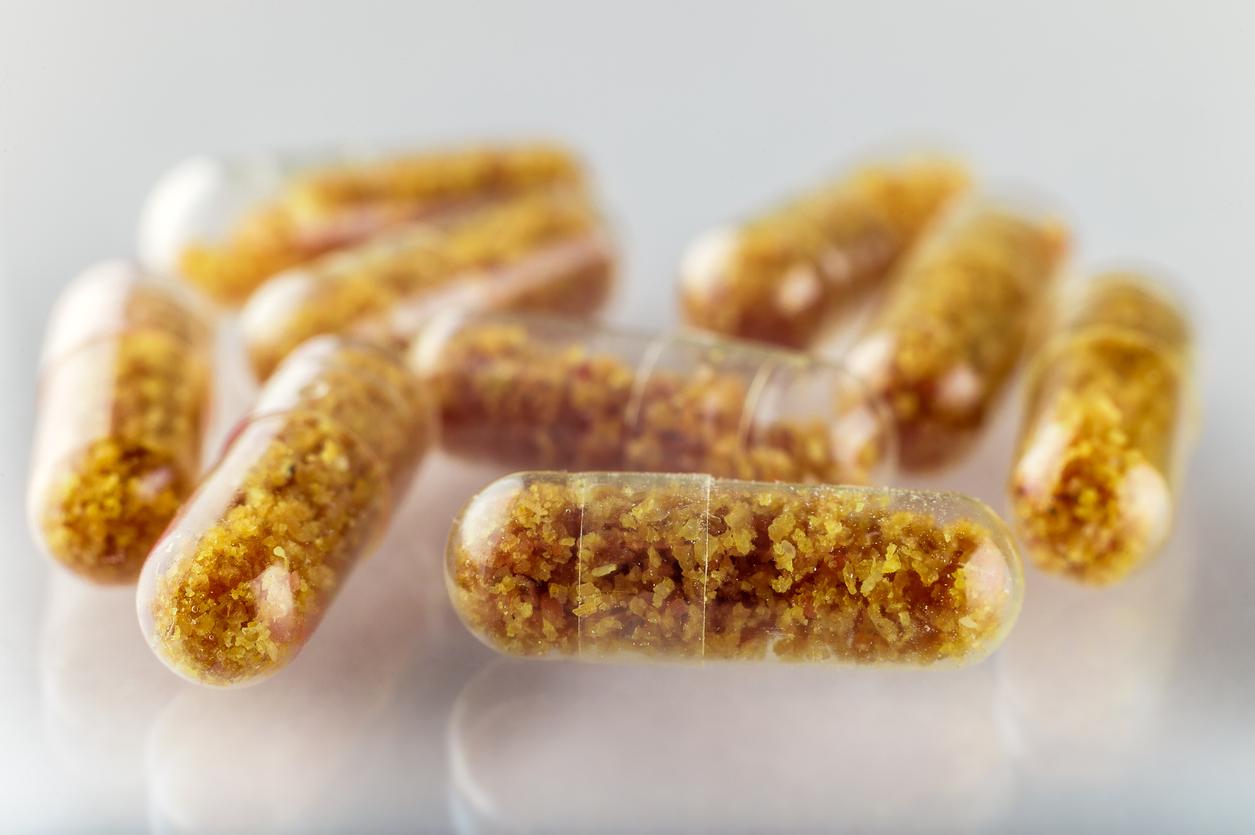Editor's note: This story has been updated with comments from Sahil Khanna, MBBS.
A paper yesterday in the New England Journal of Medicine is offering new details on the two patients who developed drug-resistant bloodstream infections after undergoing fecal microbiota transplantation (FMT).
The two patients, one of whom died, were first reported by the Food and Drug Administration (FDA) in a Jun 13 safety alert, in which the agency warned of the potential for dangerous infections with the use of FMT—a procedure that involves the transfer of stool from a healthy donor via capsule or colonoscopy. The agency also halted a number of FMT trials until additional screening could be put in place.
At the time of the announcement, no additional details on the patients—where they were treated, and why they were receiving FMT—were offered. But the FDA noted that the invasive infections had been caused by extended-spectrum beta-lactamase (ESBL)-producing Escherichia coli, and that stool used in the two procedures came from the same donor.
In the paper, researchers at Massachusetts General Hospital reveal that the two patients were enrolled in FMT trials at the hospital last spring, and became ill in the weeks following their FMT procedures. Using whole-genome sequencing, the researchers—including clinicians involved in the trials—confirmed that the strain of ESBL-producing E coli that caused the infections were nearly identical to a strain isolated from the stool of a single donor.
Stool not screened for ESBL-producing bacteria
While the donor stool used in the FMT capsules given to the two patients had been screened, according to FDA protocols, for Clostridoides difficile and the presence of drug-resistant pathogens like methicillin-resistant Staphylococcus aureus, it had not been screened for ESBL-producing organisms.
Since January 2019, in the wake of an FDA review of a separate FMT trial being conducted at the hospital, Mass General has expanded its donor-stool screening protocol to include ESBL-producing bacteria, which can be resistant to multiple antibiotic classes and difficult to treat in invasive infections. But the authors note that they did not go back and retroactively screen their existing inventory of FMT capsules, including those used in the two procedures.
"We were not directed by regulators to test stored materials or apply these criteria to any other study," they write.
The patients who received the FMT capsules were enrolled in two separate FMT trials; one was studying the use of FMT before and after a hematopoietic stem cell transplant, the other the effect of FMT on refractory hepatic encephalopathy. In patient #1, a 69-year-old man with liver cirrhosis attributed to hepatitis C, the infection didn't appear until 17 days after the procedure. After blood cultures confirmed the presence of ESBL-producing E coli, the man was treated with carbapenem antibiotics, and he ultimately recovered.
In patient #2, a 73-year-old man with a form of cancer known as myelodysplastic syndrome, the infection appeared 8 days after the FMT procedure. His condition rapidly worsened after the infection appeared, and he died 2 days later of severe sepsis.
After confirming that the two patients had received FMT capsules that came from the same donor, researchers at the hospital tested additional FMT capsules from the donor that had been frozen for future analysis. That confirmed the presence of ESBL-producing E coli with a similar antibiotic resistance pattern to blood isolates from the patients. In addition, tests of frozen fecal samples obtained from the patients prior to FMT showed that they were negative for ESBL-producing organisms—an indication that the infection was likely caused by an outside source.
Sequencing of ESBL-producing E coli isolates from the patient's blood and the donor stool revealed that they all belonged to the same sequence type (ST131) and serotype (O25:H4), and were nearly identical genetically.
"Because there was a distance of at most 1 SNP [single nucleotide polymorphism], the isolates from the donor and the patients were deemed with high confidence to be clonal organisms," the authors write.
Further stool screening of other patients who received FMT capsules from the same donor also revealed the presence of ESBL-producing E coli, although none of the patients developed infections. The researchers can't conclusively attribute this to FMT, but they suspect the patients likely acquired it from the procedure.
Need for universal screening standards
For now, the two cases highlight some of the concerns that have been raised about FMT, which has been found to be a highly effective for treatment of recurrent C difficile infection and is being investigated for treating other conditions in more than 300 clinical trials. The idea behind FMT is to introduce healthy bacteria from a donor into the gut microbiome of a sick recipient and restore the balance between good and bad bacteria.
In patients with recurrent C difficile infections, FMT is considered an important alternative to antibiotics, which are the standard therapy but can contribute to re-infection by wiping out the beneficial gut bacteria that keep C difficile bacteria in check. FMT restores that beneficial bacteria, and several small clinical trials have demonstrated cure rates as high as 90% in patients with recurrent C difficile.
As a result, the most recent C difficile treatment guidelines from the Infectious Diseases Society of America recommend FMT for patients who have had several bouts of FMT and have not been cured by antibiotics. At least 10,000 FMT procedures for recurrent C difficile are performed each year.
The FDA remains concerned about the potential for transmission of drug-resistant bacteria and other pathogens, however, and still considers FMT an investigational procedure; it only allows clinicians to perform FMT if the stool has been screened and the patients are made aware of the risks. In its June safety warning, the FDA said that from now on, all donor stool should be tested for multidrug-resistant organisms (MDROs), and that all screening of donor candidates would have to address risk factors for colonization with MDROs and exclude individuals found to be at higher risk.
The authors of the paper say the cases illustrate the need for ongoing assessments of the benefits and risks of FMT, and for enhanced donor screening to limit the transmission of bacteria that could lead to adverse events.
But one of the problems is that screening procedures for stool used in FMT procedures are not uniform, says Majdi Osman, MD, MPH, chief medical officer at Boston-based OpenBiome, the country's largest stool bank. Unlike blood banks, which have clear guidelines that they have to follow, stool banks—and hospitals and other medical facilities that use their own stool collections for FMT—don't have universal screening guidelines.
"These two cases underscore the importance of rigorous donor screening, and how crucial it is that we come to some universal standards on donor screening so that any patient and any physician, regardless of the source of FMT, is receiving stool that adheres to certain standards that everyone is meeting," Osman said. "That's one of the gaps in this field."
OpenBiome has shipped more than 50,000 FMT treatments to physicians since 2013, with no reported serious adverse events related to the material, and was screening for ESBLs and other antibiotic-resistant pathogens before the FDA warning in June. Still, Osman said the cases nonetheless highlight the risk for transmission of antibiotic-resistant bacteria from donor stool. "We have to be clear that this is a known risk," he said.
They also reinforce the importance of physicians counselling their patients before the procedure, and walking them through the risks, benefits, and the alternatives. "That applies to treatment of C difficile infection but also when considering whether or not to do a clinical trial," he said.
Sahil Khanna, MBBS, a gastroenterologist at Mayo Clinic in Rochester, Minn., who performs FMT but had no involvement with the trials at Mass General, says it's important that the information has been made public.
"We've learned a lot from this, in terms of how donor screening should be done, what additional testing should be done, and risks and benefits that should be discussed," Khanna said. "I'm delighted that we have this information, so we can communicate with our patients and discuss with them what happened, because patients have been living in the unknown for a while."
Khanna, who noted that Mayo has changed its donor-screening methodology in the wake of the cases, said he hopes that an upcoming public hearing the FDA is holding on the benefits and risks of FMT will result in agreement on the need for universal screening guidelines. "We need to have consensus guidelines," he said.
See also:
Oct 30 N Engl J Med abstract















